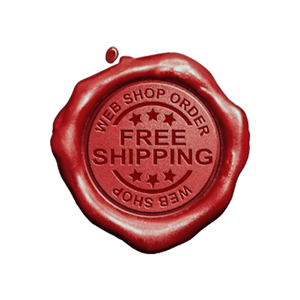Beta-Carotene 25000IU (100)
Beta-Carotene 25000IU (100) er ombestilt og vil sendes så snart den er tilbake på lager.
Beta-Carotene – Naturlig kilde til vitamin A og antioksidantbeskyttelse
Beta-Carotene er en naturlig, kraftig antioksidant og forløper til vitamin A, essensielt for immunforsvar, syn, hudhelse og cellefunksjon. Dette kosttilskuddet gir 25,000 IU beta-karoten per softgel, en trygg og balansert kilde til vitamin A som kroppen omdanner etter behov. Produktet inneholder 100 softgels og er utviklet for å gi optimal næring og støtte til kroppens naturlige prosesser.
Fordeler og effekter
1. Støtte til syn og øyehelse
Beta-karoten konverteres til vitamin A, som er avgjørende for opprettholdelse av godt syn, særlig under svake lysforhold, og for å støtte øyehelsen generelt.
2. Hudhelse og cellebeskyttelse
Vitamin A bidrar til sunn hud og støtter cellefornyelse, mens beta-karoten fungerer som en antioksidant som beskytter celler mot skade forårsaket av frie radikaler.
3. Immunforsvaret
Beta-karoten hjelper til med å styrke immunforsvaret ved å støtte funksjonen til thymuskjertelen og bidrar til en balansert immunrespons.
4. Hjertehelse
Som en antioksidant beskytter beta-karoten mot oksidativt stress, som kan bidra til kroniske sykdommer, inkludert hjerte- og karsykdommer.
5. Naturlig antioksidant
Beta-karoten beskytter kroppen mot frie radikaler og kan bidra til å redusere risikoen for utvikling av visse sykdommer. Studier antyder at kosthold rikt på beta-karoten kan være gunstig for å redusere risikoen for kreft og hjertesykdom.
6. Balansert kilde til vitamin A
I motsetning til direkte vitamin A-tilskudd, som kan bli giftige i høye doser, konverterer kroppen bare så mye beta-karoten som den trenger, noe som gjør det til en tryggere kilde.
Kvalitet og innhold
-
Ingredienser per softgel:
- Vitamin A (som beta-karoten): 25,000 IU
- Andre ingredienser: Soyabønneolje, gelatin, glyserin, bivoks, lecitin og renset vann.
- Antall serveringer: 100 softgels per beholder.
-
Renhet og sikkerhet:
Inneholder ikke gluten eller kunstige tilsetningsstoffer.
Dosering og bruk
- Anbefalt bruk: Ta én softgel daglig, helst i forbindelse med et måltid.
- Forholdsregler: Gravide, ammende eller personer som kan bli gravide, bør konsultere helsepersonell før bruk.
Vitenskapelig bakgrunn
Hva er beta-karoten?
Beta-karoten er en naturlig forekommende karotenoid og pigment som gir frukt og grønnsaker deres gule og oransje farge. Det er en kraftig antioksidant og den mest effektive forløperen til vitamin A i kroppen. Når det konsumeres, konverterer leveren beta-karoten til vitamin A, som lagres for senere bruk.
Sikkerhet ved beta-karoten
Beta-karoten er en trygg kilde til vitamin A, og kroppen konverterer kun det som er nødvendig. I sjeldne tilfeller, som ved høyt inntak blant røykere, kan det øke risikoen for helseskader. Rådfør deg med helsepersonell hvis du har spesifikke helseforhold.
Konklusjon
Beta-Carotene er et ideelt supplement for de som ønsker å støtte syn, immunforsvar og hudhelse, samtidig som det gir naturlig antioksidantbeskyttelse. Dette produktet tilbyr en balansert kilde til vitamin A og er formulert for trygg og effektiv støtte til kroppens helse og velvære.
Forbehold
Tillatt brukt for voksne. All bruk av tilskudd foregår på eget ansvar og bør skje i samråd med lege. Anbefalt døgndose bør ikke overskrides. Effekten av dette produktet kan variere fra person til person. Kosttilskudd bør ikke erstatte et variert kosthold. Bør oppbevares utilgjengelig for barn. Uno Vita AS hevder ikke at produktene vi markedsfører kan kurere sykdom.
Ansvarsfraskrivelse
Uno Vita bruker i økende grad kunstig intelligens til analyser, sammendrag og utforming av artikler. Vi tar ikke ansvar for mulige feil i tekster, artikler eller beskrivelser som skyldes menneskelige eller datateknologiske feil, unøyaktigheter eller manglende informasjon i vitenskapelige og medisinske studier. Informasjonen på denne nettsiden er kun for informasjonsformål og er ikke ment å erstatte profesjonell medisinsk rådgivning. Eventuell bruk av produkter eller informasjon fra denne nettsiden skjer på eget ansvar.
Vitenskapelige referanser
- Cell Mol Life Sci. 2004 Jun;61(12):1475-84.
- Curr Cancer Drug Targets. 2004 May;4(3):285-98.
- Nutr Cancer. 2002;42(1):117-24.
- Biochim Biophys Acta. 2002 Feb 20;1574(1):85-92.
- JAMA. 2003 Jul 23;290(4):476-85.
- Eksp Klin Farmakol. 1993 Jan-Feb;56(1):49-51.
- Vopr Med Khim. 1992 Nov-Dec;38(6):31-3.
- ScienceDirect: Antioxidant properties of beta-carotene.
- PubMed: Role of beta-carotene in immune health.
- Cochrane Library: Vitamin A supplementation and vision.
- Global Health Library: Beta-carotene in chronic disease prevention.
- MedlinePlus: Safety of beta-carotene supplements.










